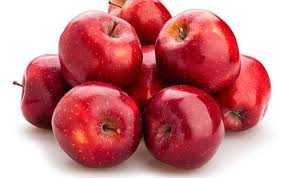When people say, “An apple a day keeps the doctor away,” they may not be too far from the truth — especially when it comes to heart health. Apples are among the most widely consumed fruits in the world, and research shows they have powerful nutrients that can help protect your heart. Packed with fiber, antioxidants, and natural compounds, apples are more than just a convenient snack — they are a natural shield against heart disease.
In this article, we’ll explore the main ways apples support cardiovascular health and why including them in your diet could be a simple yet effective step toward a healthier heart.
1. Apples Lower Bad Cholesterol (LDL)
One of the leading causes of heart disease is the buildup of bad cholesterol (LDL) in the arteries. Apples are rich in soluble fiber, especially pectin, which helps reduce LDL levels in the blood.
How it works:
The soluble fiber in apples binds with cholesterol in the digestive system.
Instead of being absorbed into the bloodstream, the cholesterol is carried out of the body as waste.
A study published in the American Journal of Clinical Nutrition found that participants who ate apples daily had significantly lower LDL cholesterol compared to those who didn’t. Lower LDL means less plaque buildup in arteries and reduced risk of heart attacks.
2. Apples Improve Blood Vessel Health
Apples contain flavonoids, a type of antioxidant found in plant-based foods. One particular flavonoid in apples — quercetin — is known to improve blood vessel function and reduce inflammation.
Healthy blood vessels mean:
Better blood flow
Lower risk of clot formation
Reduced chances of hypertension (high blood pressure)
By keeping your blood vessels flexible and healthy, apples lower your risk of atherosclerosis, a condition where arteries harden and narrow due to fatty deposits.
3. Apples Help Regulate Blood Pressure
High blood pressure is often called the “silent killer” because it damages the heart without obvious symptoms. Apples are a good source of potassium, a mineral that helps balance sodium levels in the body.
Potassium works like a natural pressure regulator by:
Relaxing the walls of blood vessels
Promoting proper fluid balance in the body
Preventing excess strain on the heart
Eating apples regularly can contribute to maintaining normal blood pressure levels, lowering the risk of stroke and heart failure.
4. Apples Reduce Inflammation
Chronic inflammation is a hidden factor in heart disease. The antioxidants in apples, especially polyphenols, fight inflammation in the cardiovascular system. Less inflammation means less damage to arteries and a lower chance of developing blood clots.
For example, apple skins are loaded with antioxidants that protect cells from oxidative stress. That’s why nutritionists recommend eating apples with the skin rather than peeling them.
5. Apples Support Weight Control
Obesity is a major risk factor for heart disease. Apples are low in calories yet high in fiber and water, which make them filling and satisfying. Eating apples as snacks instead of processed foods can help manage body weight, indirectly protecting the heart.
Studies show that people who include apples in their diet tend to consume fewer calories overall, which contributes to healthy weight management — another key to heart protection.
6. Easy Ways to Add Apples to Your Diet
Eat a fresh apple as a snack between meals.
Slice apples into salads for a sweet crunch.
Add apple slices to oatmeal or yogurt for a heart-healthy breakfast.
Drink natural apple smoothies (avoid sugary processed juices).
Bake apples with cinnamon as a healthy dessert.
✅ Conclusion
Apples may look simple, but their health impact is powerful — especially for the heart. With their ability to lower bad cholesterol, improve blood vessel health, regulate blood pressure, fight inflammation, and support weight control, apples truly earn their title as a heart-friendly fruit.
Incorporating one or two apples into your daily routine could be one of the easiest and most natural steps toward better heart health. So the next time you reach for a snack, remember that an apple isn’t just tasty — it’s also a natural protector of your heart.



